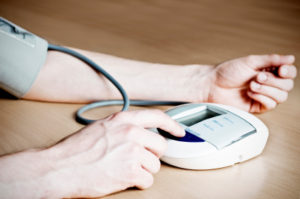
If you have high blood pressure then you most likely have a blood pressure monitor around the house to keep a regular check on your numbers. Surprisingly, in the recent article from Consumer Affairs, they reveal how most blood pressure monitors are inaccurate a large percentage of time:
For many consumers living with hypertension, measuring their blood pressure has become a part of their daily routine. Unfortunately, a new study suggests that the readings they’re taking at home probably aren’t all that accurate.
Researchers from the University of Alberta have found that up to 70% of readings from home blood pressure monitors are “unacceptably inaccurate.” This is a big problem, they say, because consumers who use these devices to make informed health decisions are being led astray.
“High blood pressure is the number one cause of death and disability in the world,” said lead researcher Jennifer Ringrose. “Monitoring for and treating hypertension can decrease the consequences of this disease. We need to make sure that home blood pressure readings are accurate.”
Inaccurate 70% of the time
For the purposes of the study, the research team tested dozens of in-home blood pressure monitors to see how closely their results mirrored gold standard clinical measurements. They found that the home monitors weren’t accurate within five mmHg approximately 70% of the time, and that they were off by as much as 10 mmHg 30% of the time.
Study co-author Raj Padwal notes that the majority of the individual home monitors that were tested demonstrated clinically-relevant inaccuracy, a worrying finding since many consumers relay this information to their doctors. He suggests several factors that might contribute to the reading discrepancies.
“Arm shape, arm size, the stiffness and age of blood vessels, and the type of blood pressure cuff are not always taken into account when a blood pressure machine is designed and validated,” he said. “Individual differences, such as the size, age and medical background of the person using the blood pressure monitor are also contributing factors.””
So, if you want an more accurate reading, how can you get a better result with your blood pressure monitor? The article then goes on to give a little advice on how you can do this a little better. Finish the article over on the Consumer Affairs website by clicking the link belw:
Photo By amandaholst1